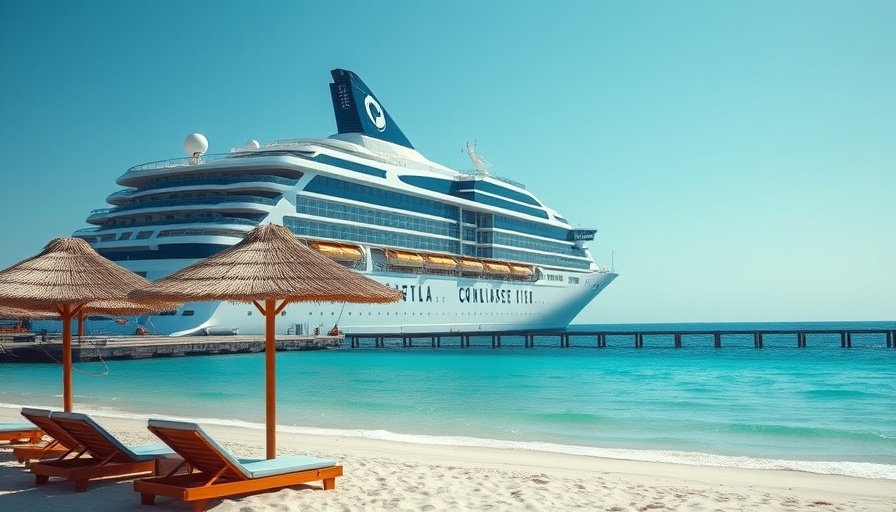
A Balancing Act: The Cost and Value of Cruising
Cruise travel costs have captivated travelers for years, presenting a varied landscape of luxury and adventure against the backdrop of passenger grievances. While some see cruising as a delightful and luxurious way to explore the world, others express concerns about being confined to a floating hotel, coupled with complexities surrounding tipping, ethics, and environmental impacts. From lively discussions in Facebook travel communities to the debates unfolding across dining rooms and decks, the conversation around cruising continues to evolve.
Repositioning Cruises: A Budget-Friendly Travel Hack?
The appeal of repositioning cruises—where ships transition between regions, often at significantly reduced prices—has sparked debate on their worth compared to flying. Members of various travel forums have shared experiences like that of Steve Babcock, who booked a transatlantic cruise from Florida to Barcelona for just $520 for two, offering stops in exotic locations like the Canary Islands. For many, repositioning cruises present a fresh alternative to the stress of air travel, allowing travelers to enjoy a relaxed environment while saving on travel expenses.
This sentiment was reaffirmed by Paul Walshe, who compared the frantic atmosphere of airports to the leisurely experience aboard a cruise ship. "You can fly from A to B in a crowded airport, or you can cruise to your destination in a private cabin, being fed and entertained for a week or two for the same price," he noted—a perspective that resonates with travelers seeking an enjoyable and affordable journey.
Navigating the Tipping Minefield
As enticing as the price of cruising may appear, the issue of tipping remains a contentious battleground. Many cruise lines incorporate automatic gratuities into their bills, adding to the overall cost even before passengers board. Observations from travelers like Jackie Cooper indicate a growing trend where some opt to remove these automatic charges and tip staff directly, a choice highlighted by Marie Dieringer, who took matters into her own hands during a Norwegian Cruise Line voyage.
Yet, not all agree with this practice. Vicki Irwin emphasizes the need for cultural sensitivity, suggesting that passengers should honor local customs. “If you take a cruise, you pay the tips,” she argued, bringing attention to the grim realities faced by cruise staff who work long hours for minimal wages, often reliant on tips for survival. Irwin’s words pose a significant challenge to those considering the true value of cruising and its impact on those who serve.
The Environmental and Ethical Dimensions
While cruising offers an appealing escape for many, it is not devoid of grave ethical and environmental considerations. Concerns about the ecological damage caused by cruise ships cannot be overlooked. As Teresa Lipson pointed out, these vessels often contribute significantly to marine pollution and the destruction of delicate ecosystems. Furthermore, Charlene Powell’s comments resonated as she shared her distrust of a travel experience that often showcases brief stops at foreign destinations, questioning the authenticity of encountering new cultures.
The debate illustrates a crisis not just about individual choices but about industry-wide practices that prioritize profit over planet or people. The story of cruise travel is layered, and it requires commuters to confront uncomfortable truths about the implications of their leisure choices.
Who Does Cruising Benefit?
Despite the controversies, many travelers continue to find value in cruising. For individuals like Linda Gorrell, the comfort and convenience offered by cruises are paramount, especially for those with specific travel needs. As travelers navigate their circumstances, comparing the cost of a comprehensive cruise experience to the combined expenses of flights, accommodations, and dining reveals a potential advantage of cruising for those seeking ease and comfort.
Conclusion: To Cruise or Not to Cruise?
Ultimately, the clarity on whether cruising remains a good deal is complex and highly individualized. Passengers must weigh the benefits of convenience and unique experiences against ethical considerations and personal preferences. As the industry shifts, evolving discussions around tipping practices, environmental responsibility, and the journey's authenticity become essential to mindful travel.
If you’re considering your next adventure, weigh your options carefully. Cruising may offer indulgence and relaxation, but with the rising tides of ecological awareness and social responsibility, it’s vital to engage thoughtfully. Navigate the waters of cruising with educated choices and express your voice on the future of travel.
 Add Row
Add Row  Add
Add 




 Add Row
Add Row  Add
Add 
Write A Comment